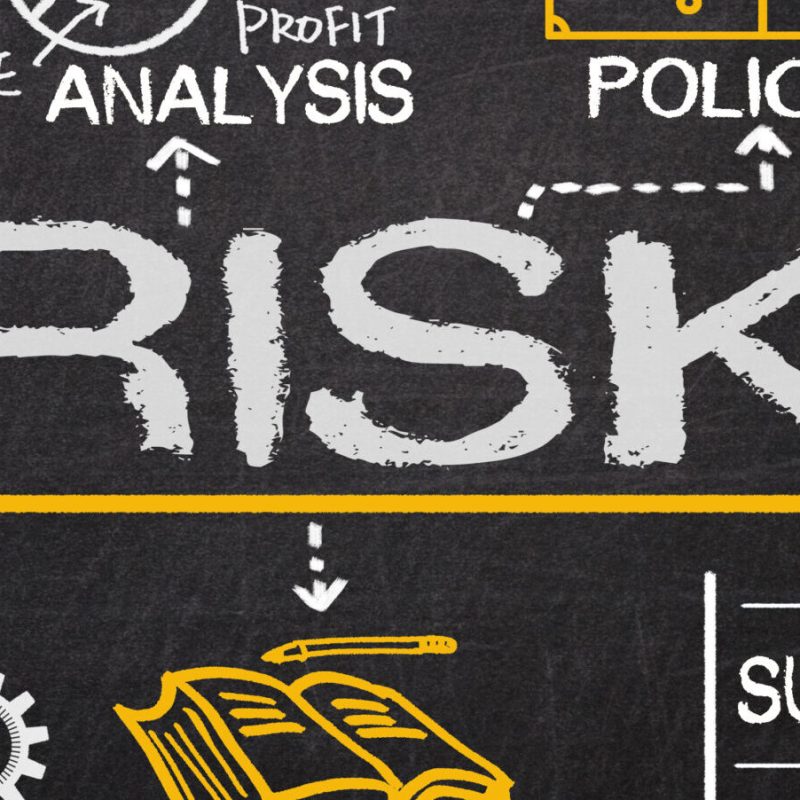Signal Detection
- 30-31 Maggio 2024
- Online
-
Inglese
- 30-31 Maggio 2024
- Online
-
-
English
-
Contenuto del corso
Recently, some of the most common critical findings in regulatory pharmacovigilance inspections are being given for signal detection and management, so the need to identify potential signals and risks in patients has increasing importance. The protection of patients through robust and clear methodologies for signal detection amidst the ever-increasing regulations requires companies to have trained and competent staff to perform such activities. This course will provide a detailed overview of all aspects of safety reviews and signal detection within a company and will cover signal evaluation for both innovator and generic products as required by regulations.
Vorresti partecipare*, ma non sei disponibile per questa data?
Il corso verrà erogato nuovamente:
- 26 e 27 Maggio 2025
(*)Contattaci via mail o telefono per iscriverti
Sei interessato ai corsi sulla Farmacovigilanza?
Iscriviti a 3 corsi e avrai il 15% di sconto*, mentre scegliendo 5 corsi avrai il 20% di sconto*!
Scegli tra questi titoli:
- Risk Management Plan & Risk Minimization Measures in Farmacovigilanza
- Il Pharmacovigilance Quality System: Costruire un Sistema in Compliance
- Ricerche e Analisi di Letteratura in Farmacovigilanza
- SDEA: i Contratti in Farmacovigilanza
- Pharmacovigilance System Master File (PSMF)
- Signal Detection – English training
- Periodic Safety Update Report (PSUR)
- Audit and Inspection in Pharmacovigilance – English training
- Evoluzione della Farmacovigilanza e impatto della Digitalizzazione
- Il sistema di Farmacovigilanza e le sue applicazioni locali secondo la normativa ed Eudravigilance
- Ruoli e Responsabilità del Local Contact Point for Pharmacovigilance
(*) gli sconti si applicano ai prezzi pieni dei corsi e non sono cumulabili con altre promozioni. La promozione è circoscritta all’iscrizione dello stesso nominativo a 3 o 5 corsi selezionati tra quelli proposti.
Cosa saprai fare dopo il corso?
- Apply the concepts and principles of signal management in PV and implement or improve this process in their own organisation
- Understand different approaches to signal management that are followed by various organisations
- Understand different approaches to signal detection for different medicines
- Understand the concept of signal detection algorithm (SDA), signal of disproportionate reporting (SDR) and its use in EVDAS
- Learn how to use and implement EVDAS into signal management process
- Understand the role of signal detection in the assessment of emerging safety profiles of medicine
- Understand the regulatory expectations in different geographic regions
Struttura del corso
09:00 – 13:00 COURSE SESSION DAY 1
09:00 – 13:00 COURSE SESSION DAY 2
Programma
May 30, 2024
9.00 What is signal detection and what are the regulatory requirements for signal detection?
The nature of signal detection and the various regulatory requirements will be presented.
– What organisation in a marketing authorisation holder should perform signal detection and how should they be staffed
• Central safety organisation
• Affiliates
• Qualified signal detection staff
Q&A time
9.30 Sources of signals
Different sources of signals will be discussed
• Post-marketing safety databases
• Epidemiology studies
• Clinical trials
• Toxicology and pharmacology
• Literature
• Others
Q&A time
10.00 How do regulators themselves perform signal detection
The approach to signalling by different regulators will be discussed
• EMA
• Local EU regulators
• FDA
• Others
Q&A time
10:20 BREAK
10:40 Use of safety databases for signal detection
The theoretical basis of signal detection from post-marketing safety databases and their appropriate use will be discussed
• Qualitative signal detection
• Quantitative signal detection
– Disproportionality analyses
• Longitudinal analyses
Q&A time
11:10 End of morning session
14:30 Start of afternoon session
14:35 Using Eudravigilance and EVDAS for signal detection Calin Lungu
The use of Eudravigilance and EVDAS. practical aspects of use of Eudravigilance and EVDAS will be presented
16:15 Q&A time
16:25 Closure of day one
May 31, 2024
9.00 Assessment of signals by marketing authorisation holders
How signals assessed will be discussed
• Validating a signal
• Prioritization of a signal
• Investigation of a signal
• Closing a signal
Q&A time
09.40 Link between signal detection and the PSUR and risk management plan
The important links between signal detection, PSURs, drug label and risk management plan will be reviewed
10:00 Audit and inspection of signal detection activities
Appropriate approaches to ensure quality of signal detection activities will be presented
• Quality system for signal detection
– Key Performance Indicators
• What to audit
• Pharmacovigilance inspectors assessment of signal detection
Q&A time
10.25 BREAK
10.45 Exercise
Delegates will be provided with data concerning signal activities to discuss together to determine the appropriate signal status that the data supports. This will be followed by discussion of the conclusions proposed.
11:45 Signal detection during clinical development of new chemical entity
What role does formal signal detection have during the clinical development of a medicine and how best to document this will be discussed
Q&A time
12.00 What makes a good signal detection system
A summary of considerations to ensure signal detection to the appropriate standards can be achieved.
12:20 Final questions session
12:30 Closure of the course
For professionals working in the following areas:
• Pharmacovigilance
• Drug Safety and Risk Management
• Signal Management and Safety Science
• Pharmacoepidemiology
• Quality and Compliance
Il corso si sviluppa attraverso lezioni frontali. Grazie ad una metodologia didattica interattiva con presentazione ed esempi pratici, i partecipanti potranno avere spunti da poter applicare nella loro realtà professionale.
Se il corso è online, il link di partecipazione verrà inviato 2-3 giorni prima dell’inizio del corso.
Sconto del 5% per le iscrizioni entro 1 mese dal corso, sconto del 10% per le iscrizioni entro 2 mesi dal corso. I prezzi sono da intendersi IVA esclusa. Le offerte non sono cumulabili. Per sconti su iscrizioni multiple rivolgersi a info@pharmaeducationcenter.it
Modalità di cancellazione
Si richiede di comunicare la disdetta all’evento formativo inviando un’e-mail a info@pharmaeducationcenter.it entro due settimane dalla data di inizio dello stesso. Trascorso tale termine, si procederà con l’addebito dell’intera quota.
Modalità di sostituzione partecipante
Si prevede la possibilità di cambiare il nome del partecipante all’evento formativo, senza alcun costo aggiuntivo, inviando un’e-mail a: info@pharmaeducationcenter.it. Si chiede di dare comunicazione entro una settimana dalla data di inizio dello stesso indicando il nome del primo iscritto e il nome del sostituto.
Condizioni di annullamento o rinvio
Pharma Education Center si riserva la facoltà di annullare o posticipare l’evento formativo nel caso in cui non si raggiunga un numero minimo di partecipanti. Pharma Education Center si impegna a restituire la quota d’iscrizione già versata senza ulteriori oneri o su richiesta dell’iscritto concedere un bonus spendibile per la partecipazione ad un altro evento formativo in programma nell’anno corrente.
Docenti

Calin A. Lungu
MD, BCPM, Eudravigilance and XEVMPD Trainer – EMA, CEO – DDCS
Dr. Calin Lungu is a physician with a notable experience in PV and quality assurance . He is a very esteemed, well-known trainer for EudraVigilance, XEVMPD and EVDAS having teached for European National Competent Authorities and the European Medicines Agency. Dr. Lungu is the CEO of Drug Development Consulting Services.
Iscriviti al corso
800€
Materiale del corso consegnato al partecipante
Rilascio attestato di partecipazione a fine corso
Massima qualità per contenuti e docenti selezionati
Potrebbe interessarti anche...
- 13 Maggio 2024
- Online
- 22 Maggio 2024
- Online
- 23 Maggio 2024
- Online
- 11 Giugno 2024
- Online
- 12 Giugno 2024
- Online
- 20-21 Giugno 2024
- Online
- 8 e 9 Ottobre 2024
- 11 e 12 Marzo 2025
- Online
- 17-18 Ottobre 2024
- 27-28 Marzo 2025
- Online
- 4 Novembre 2024
- 3 Aprile 2025
- Online
- 13 e 14 Novembre 2024
- 12 e 13 Marzo 2025
- Online
- 13 Novembre 2024
- 19 Maggio 2025
- Online
- 20 Novembre 2024
- 14 Maggio 2025
- Online











